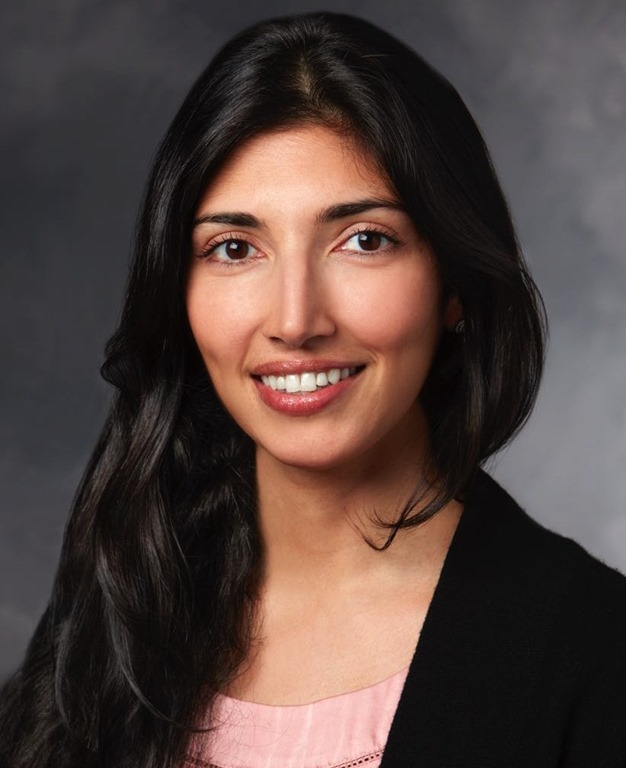Stanford Health Care recently did a spotlight on Dr. Zara Patel
Dr. Patel is Associate Professor of Otolaryngology – Head & Neck Surgery and, by courtesy, of Neurosurgery and Director of Endoscopic Skull Base Surgery at Stanford.
As an Endoscopic Sinus and Skull Base Surgeon, Dr. Zara Patel’s surgical work and research has helped thousands of patients regain their sense of smell, save their vision, and even sometimes their lives. While removing sinus inflammation and sinus tumors on her own, Dr. Patel also collaborates with colleagues in neurosurgery to help remove skull base tumors endoscopically for better patient outcomes. She has also furthered critical research into olfactory dysfunction that is helping patients who previously had no treatment options. With the COVID-19 pandemic bringing smell dysfunction to millions of people around the world, Dr.
Patel’s work is more important than ever.

Could you please tell us a little bit about your work at Stanford Medicine?
I am a Rhinologist, a sub-specialist within the field of otolaryngology (ENT) that does Endoscopic Sinus and Skull Base Surgery. I am also the Director of Endoscopic Skull Base Surgery within our
department and run our center for Olfactory Disorders. I have three primary areas of both clinical and research interest: chronic rhinosinusitis and sinus surgery, endoscopic skull base surgery, and olfactory disorders (loss or dysfunction of smell). I love talking to patients, educating them about their disease process, and operating. The type of surgery I do can greatly improve my patients’ quality of life, in terms of inflammatory sinus disease, and oftentimes save their vision or life, in terms of sinus tumors or malignancies. Being able to help patients in this way is extremely rewarding. I also work with our amazing neurosurgical colleagues to remove skull base tumors endoscopically, and our skull base team is constantly pushing the boundaries of what is considered “possible” in that area.
I also see patients with loss or dysfunction of smell, a field which has suffered from a lack of understanding and empathy until recently, with the COVID-19 pandemic bringing smell dysfunction to millions of people around the world, and a new global appreciation for what this sense means in terms of safety, social interaction, and quality of life.
My research also reflects those three clinical areas of expertise, and is wide-ranging, covering topics such as applying precision medicine to the decision making process of whether a patient needs sinus surgery, developing and testing medical and surgical devices that can advance our treatment for both sinus and skull base patients, and both running clinical trials as well as utilizing basic science research to find new and innovative therapies for my patients with olfactory disorders. I am currently the Primary Investigator on approximately twenty separate protocols investigating different topics within these broader areas.
When you think about your work at Stanford Medicine, what are you most proud of?
When I started practicing about a decade ago, I already felt extremely confident in my ability to help sinus and skull base patients, because of my incredible surgical training and mentors. But within rhinology, we also would see these patients with olfactory dysfunction, a group of patients who were desperate for help because of how impactful the loss or alteration was on their quality of life. At that time, we really had nothing to offer these patients, and it was the worst feeling having to tell someone, that even after all my years of training, that there was nothing I could do to help them. Over the last ten years, partly due to my own research but of course also due to research performed by others all around the world, we have been able to find new therapies to help some of these patients. I can now help about 50% of the patients coming to see me for this problem. I am extremely proud of my contribution to this field and that it has had a large impact in our ability to help these patients.
Why do you work at Stanford Medicine? What is it about Stanford that drew you here and keeps you engaged each day?
After I completed my residency in Otolaryngology – Head and Neck Surgery, I was lucky enough to do my fellowship here at Stanford in Endoscopic Sinus and Skull Base surgery. After having witnessed how medicine is practiced throughout the country, growing up in St. Louis, MO, going
to medical school in Portland, OR, doing residency in New York, NY and getting my first job as an attending surgeon in Atlanta, GA, before being recruited back to Stanford, I can truly say with confidence that Stanford Medicine rises above all the rest. From the absolute dedication and enthusiasm that each and every member of the clinical team has towards improving patient care to the brilliant innovation and collaborative spirit found in all corners of our research endeavor to the institutional culture of pride in our work and our striving to always be better, Stanford Medicine is a wonderful place to practice medicine. It’s been my privilege to be part of the Stanford Health Care team.
